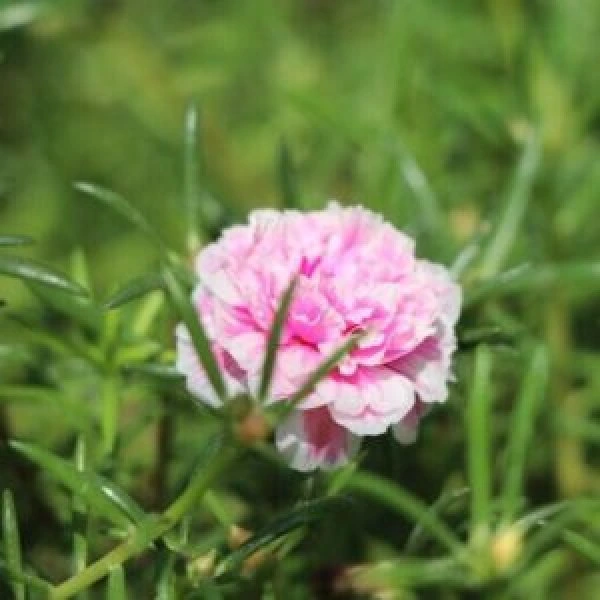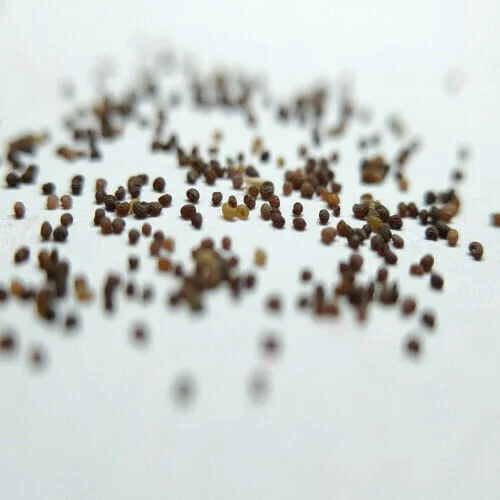Portulaca Mixed Seeds (100seeds)
₹20.0
Portulaca is beautiful mosses, perfect for a hanging garden. They are pretty and petite summer blossoms with the merriment of mixed colors. Try our Non-GMO Portulaca Mixed Seeds. Also, check out our workshops for more details.
PRODUCT DESCRIPTION
Number of seeds in a packet – 100
PLANT DESCRIPTION
- Difficulty Level – easy
- Plant Height – 3 – 9 inches
- Flower Color – mixed
- Type – indoor (balcony) or outdoor
- Feed – Vermicompost for nutrients every week, Seaweed once a month for greener leaves, and Epsom salt for better blooming once a month
- Watering – 1 – 2 times a week
- Sunlight – full sunlight
- Germination Time – 1 week
- Flowering Time – 8 weeks
- Suitable Temperature – 65°F – 85°F
- Season – annual
- Sowing – april
HOW TO GROW PORTULACA FROM SEEDS
- Take a Growbag and fill it with Cocopeat.
- Sprinkle the seeds around the Growbag.
- Cover the seeds gently with Cocopeat and spray with water.
- Fill the hole with Cocopeat and spray with water.
- Water once or twice a week.
- Seeds will germinate within 7 days.
- Full sunlight is needed.
ALTERNATE METHOD
- Take a Medium size Pot and add a Potting Mix.
- If planting in the soil add Neem Cake Powder, Vermicompost, and Seaweed.
ALTERNATE NAME
Botanical name: Portulaca oleracea
portulaca mixed seed in hindi: portulaaka mishrit beej (पोर्टुलाका मिश्रित बीज)
portulaca mixed seed in tamil: portlaka kalanta vitai (போர்ட்லகா கலந்த விதை)
portulaca mixed seed in telugu: portulaca misrama vittanaṁ (portulaca మిశ్రమ విత్తనం)
portulaca mixed seed in kannada: portulaka misra bija (ಪೊರ್ಟುಲಾಕಾ ಮಿಶ್ರ ಬೀಜ)
portulaca mixed seed in marathi: portulaca misrita biyane (portulaca मिश्रित बियाणे)
portulaca mixed seed in malayalam: porttulaakka mixed vithu (പോർട്ടുലാക്ക മിക്സഡ് വിത്ത്)
Other names: Moss rose, portulaca grandiflora….
You must be logged in to post a review.
Q & A
Organic flower seeds can play a crucial role in promoting sustainability for several reasons:
Environmental Benefits: Organic flower seeds are produced without the use of synthetic fertilizers, pesticides, and genetically modified organisms (GMOs). This reduces the release of harmful chemicals into the environment, preserves soil health, and supports biodiversity by maintaining a natural ecosystem.
Conservation of Genetic Diversity: Organic flower seeds are often sourced from heirloom or open-pollinated varieties. By cultivating these seeds, gardeners and farmers help preserve genetic diversity, which is essential for adapting to environmental changes and ensuring long-term sustainability in plant populations.
Reduced Chemical Exposure: Organic flower seeds minimize exposure to synthetic chemicals, both for the growers and the end consumers. This is particularly important for people with sensitivities, allergies, or concerns about the potential health effects of pesticide residues.
Support for Pollinators: Many organic flower varieties are known for their attractiveness to pollinators such as bees, butterflies, and hummingbirds. By growing organic flowers, individuals can create habitat and food sources for these beneficial insects, contributing to the overall health of ecosystems.
Seed Sovereignty: Organic flower seeds empower individuals and communities by preserving their right to save, exchange, and sell seeds. This promotes seed sovereignty and reduces dependence on large seed corporations, fostering a more decentralized and sustainable agricultural system.
To ensure the sustainability of organic flower seeds, it is essential to support organic seed producers, prioritize open-pollinated and heirloom varieties, and engage in seed saving practices. Additionally, promoting awareness about the benefits of organic gardening and the importance of preserving genetic diversity can further strengthen the sustainability of organic flower seeds.
General Inquiries
There are no inquiries yet.




Reviews
There are no reviews yet.